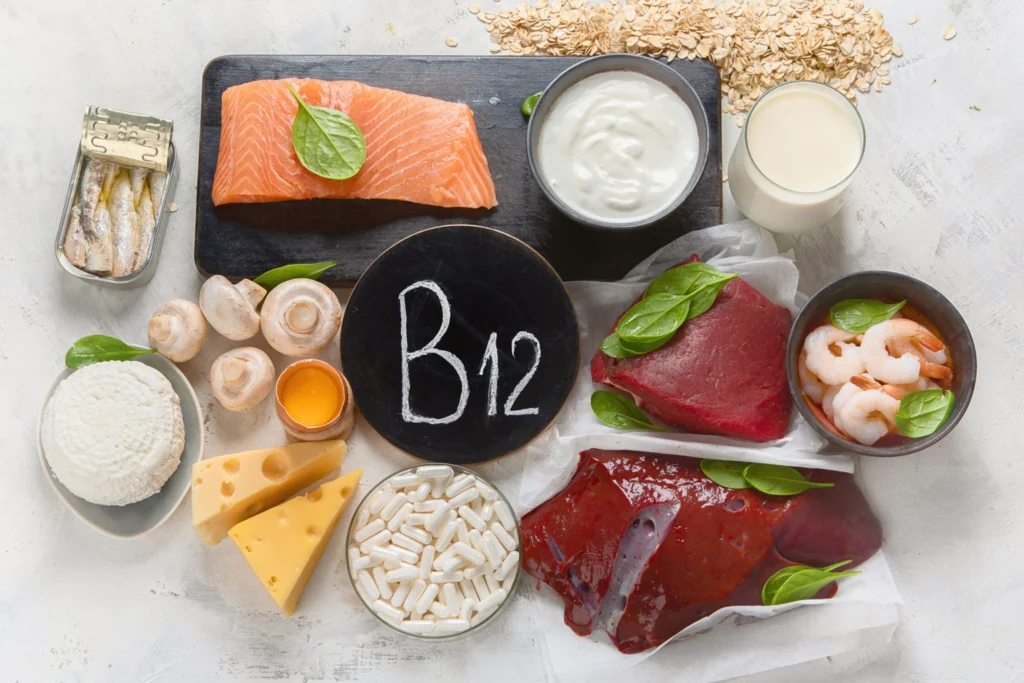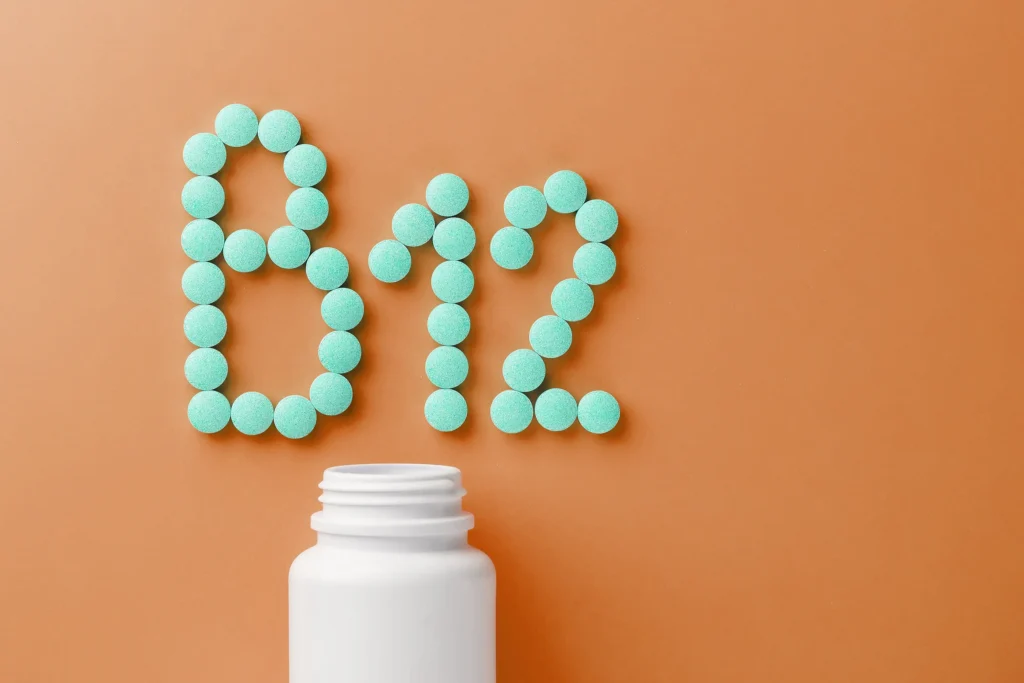
Vitamin B12 Dosage: Vitamin B12 is a vital nutrient that your body needs to stay healthy. It plays a giant role in keeping your nerves working properly, making red blood cells and supporting brain health. But how much B12 dosage do you need every day?
What is vitamin B12?
Vitamin B12 is a water-soluble vitamin. Your body doesn’t store it, so you need to acquire it regularly through your diet or supplements. Without enough B12, you might feel tired, weak or even have memory issues.
Also Read | Balanced diet 101: What a healthy plate should really look like
How much vitamin B12 do you need per day?
The amount of vitamin B12 you need each day depends on your age, lifestyle, and health conditions.
| Group | Recommended Daily Amount |
| Babies (0–6 months) | 0.4 micrograms (mcg) |
| Infants (7–12 months) | 0.5 mcg |
| Children (1–3 years) | 0.9 mcg |
| Children (4–8 years) | 1.2 mcg |
| Children (9–13 years) | 1.8 mcg |
| Teens (14–18 years) | 2.4 mcg |
| Adults | 2.4 mcg |
| Pregnant women | 2.6 mcg |
| Breastfeeding women | 2.8 mcg |
Can you get vitamin B12 from food?
Yes, many people get their daily dose of vitamin B12 through food. Vitamin B12 is mostly found in animal products. Some beneficial sources include milk and dairy products, meat, fish, eggs and fortified cereals. If you eat a well-balanced diet, you are probably getting enough B12.
Who needs to take vitamin B12 supplements?
Although the body requires only a small amount of vitamin B12, certain factors can make it difficult to obtain or absorb enough. Individuals following vegetarian or vegan diets are at higher risk, as B12 is primarily found in animal-based foods. After the age of 50, reduced stomach acid production further limits absorption from food sources.
Medical conditions such as coeliac disease, as well as frequent use of antacids, can also interfere with B12 absorption. In addition, certain surgical procedures, particularly those involving the intestines, may reduce the body’s ability to absorb this essential vitamin.

Signs you might need more vitamin B12:
If your body isn’t getting enough B12, you may notice some signs. These include:
- Feeling tired or weak
- Pale or yellowish skin
- Numbness or tingling in hands and feet
- Memory problems or confusion
- Mood changes like depression
- Tongue soreness or mouth ulcers
If you have any of these symptoms, it’s a beneficial idea to talk to your doctor and get your B12 levels checked.
Also Read | Is it safe for diabetics to eat bananas?
Vitamin B12 may be required in small amounts, but it plays a vital role in overall health, from energy production and brain function to skin and nerve health. Although the daily requirement is modest, ensuring adequate intake can significantly support your well-being. Whether obtained through diet or supplements, maintaining sufficient B12 levels is a simple yet effective step toward staying healthy every day.








